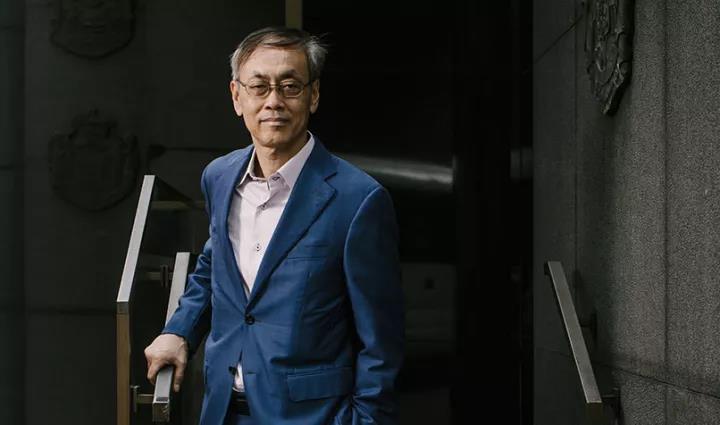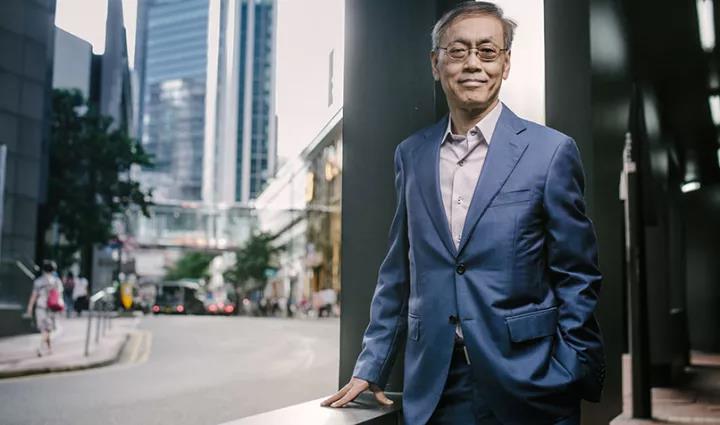
By Joseph Catanzaro
2017-09-01
This article was originally published in INTHEBLACK, Australia’s leading business magazine on September 1st.
The Father of Business Consulting in China Knows Why eBay Failed There
In the early 1990s, when China was still struggling to shrug off the straightjacket of its planned economy, the man appointed to lead the first business consulting firm allowed in the nation was immediately confronted with the scope of the challenge ahead.
“There wasn’t even a concept of what a company was,” says Dr Edward Tse. “Everything was a state-owned enterprise (SOE), and a SOE is very different from a company like we know them today.”
Tse, raised in Hong Kong and educated both there and in the US, was poached from McKinsey & Company by Boston Consulting Group (BCG) in 1993. BCG was the first business consulting firm given approval by the Chinese Government to set up shop in mainland China.
The nation was beginning to open up to the world under economic reforms, and BCG saw potential in both China and Tse. It has proven to be a wise choice. Tse is held in high esteem in China: he’s the man everyone wants to know and he’s regarded as one of the best management consultants in the business.
Made managing partner of BCG’s China practice, Tse says his initial work with China’s fledgling business community wasn’t just about convincing potential clients that his people could do a good job, but being good at convincing them what they did actually constituted a job.
“People asked, ‘what do you guys actually do?’. We’d say, ‘well, we manage a consulting firm to advise companies’. They’d shake their heads. They couldn’t understand what a consulting firm was.”
Fast-forward two decades, and both China and its consulting industry are vastly changed. In 2016, foreign direct investment in China grew by 4.1 per cent year-on-year to US$118 billion, reports China’s Ministry of Commerce. China’s consulting sector, which is helping guide those foreign companies and local businesses, was valued at about US$3 billion in 2015 by UK-based Source Information Services. In early 2017, IBISWorld put the sector’s worth at US$25 billion.
China business pioneer
Sitting on a high-speed train travelling at hundreds of kilometres per hour through what is now the world’s second biggest economy, Tse says he believed early on that the potential rewards of doing business in China would far outweigh the challenges. He waves away the suggestion he is the founding father of China’s now booming consulting sector, despite his role as the first to steer a practice through those uncharted waters. Instead, he puts his appointment down to “right place and right time”.
“At that time there weren’t many ethnic Chinese strategy consultants and so demand and supply made it happen,” he says.
Others believe Tse is just being humble.
“Edward Tse must be considered a pioneer in the field of business consulting in China,” says Shane Tedjarati, a former client and now president of Global High Growth Regions for Honeywell. “I’ve known Dr. Tse for over two decades and he’s provided invaluable advice on numerous industries, including automotive and high technology.”
All Tse will admit is he was busy from the get-go. In the early 1990s, foreign firms suddenly had access to the most populous nation on the planet.
“We [BCG] received a frenzy of inquiries and projects, right away,” Tse says.
In the past 20 years, he has continued to advise companies on how best to enter the China market, initially at BCG, and later as Booz & Company’s senior partner and chairman for Greater China.
Along the way he’s written award-winning books on China business strategy and management (The China Strategy in 2010 and China’s Disruptors in 2015), had board appointments on Chinese state-owned giants including Baoshan Iron & Steel, and been given government advisory roles in Hong Kong and Shanghai.
He’s also earned himself a reputation in business circles as a China whisperer. Tse is tight-lipped about his client list, but it’s understood it includes some of the biggest names in global business, across a wide range of sectors.
The China market evolution continues
Tse, however, is not one to rest on his laurels. He says, in China, it isn’t an option. “The China market is still evolving. The China market we knew 20 years ago is different to the market 10 years ago, and the China market today. It’s a moving target.”
Dr. Edward Tse, widely considered to be the father of business consulting in China. Photographer: Calvin Sit
There are some big factors behind China’s ever-changing business landscape, Tse explains. Foremost is that China’s transition to a totally free market economy won’t be completed for another few decades, meaning the business landscape will continue to shift as protectionist legislation is scaled back and SOE monopolies are challenged.
That’s one reason why Tse has continued his own evolution. Just before Booz & Company merged with PwC in 2014 (becoming Strategy&), Tse struck out on his own to found the Gao Feng Advisory Company, which is firmly rooted in China.
After decades of telling foreign companies their China business needed to be more China-centric, Tse took his own advice.
“China was always at the fringe, not the core, for the big multinational companies,” he says, “and that also applied to the big consulting companies, because they were headquartered in the West.”
Tse’s Gao Feng practice is at the front of a new wave of Chinese consulting firms that are beginning to compete with the multinational players in China. With about 100 consultants spread across Beijing, Shanghai and Hong Kong, it is still a small practice, but Tse says Gao Feng is punching above its weight and is now often “invited to compete with the big firms”.
His first suggestion for businesses looking to break into China is not to arrogantly assume that the one-size-fits-all approach successfully used in 100 other markets will work there.
This isn’t a revelation, because he’s been saying it for 20 years; the surprise is that many foreign business leaders still think their company is the exception, and does not have to adapt.
“China’s transition from a planned economy is still going on and in my opinion it will take another few decades to complete that transition,” he says. “This is unique. I don’t know another country in the world doing this.
“You have got a much more complex [business] ecosystem in China. The players are not just pure commercial players: you have private companies and multinationals, but you have also got SOEs who play a different ball game … the government is also very involved in driving the economy.”
Secrets of success and failure
Underestimating just how different China is, and where problems and competition may arise, has been the death knell of more than one bid to enter the China market, says Tse. This pitfall can be avoided, he adds, but it involves giving up something global head offices rarely like to relinquish: control.
“You have to put the brainpower for the real decision-making here in China,” says Tse.
He points to eBay’s unsuccessful 2002 bid to make it in China. The internet giant ran up the white flag after being beaten by a then much smaller home-grown company, Alibaba. It’s what can happen when a multinational doesn’t give its China office enough autonomy, says Tse.
“eBay didn’t understand the complexities of the China market. They required everything to be done almost exactly as they they did it in the US,” he says.
“Alibaba was smaller but its team was flexible and adapted quickly. They understood what the consumer wanted and they developed a locally accepted version of the business model.
“If it would take a week before eBay [with its head office overseas] could make a decision and come back to China with it, during that one week Alibaba could have made five decisions. This is how Alibaba beat eBay.”
Implementing a Western, “democratic and by consensus” management style has also often proven a mistake, adds Tse. Most of the successful companies in China, both domestic and foreign, are led by a particular brand of executive that resonates with the local Chinese workforce.
“The … leaders who are successful at multinationals are usually in a control mode,” he says. “They tend to be viewed as the big boss, someone with authority who has a lot of decision-making power and is able to drive the business in a very local way despite what headquarters wants them to do. They are really quite good at saying this is what we do, we have vision, we have purpose, and the team will then follow.”
The Chinese consumer
The other, obvious side of the success equation is the reception from Chinese consumers.
Tse says too many multinationals come in with a view that their core product will simply work in China, as is. Yet with little or no brand recognition to rely on, foreign products are often less appealing to consumers than local alternatives.
Tse points to Coke as a company that did a reasonable job of adapting its product presentation to appeal to Chinese consumers and diversified its product line to capture more market share.
“They genuinely tried to create a more locally accepted product line. At the same time, while they are trying to develop local products such as juices and Chinese tea, I think they’re still hanging too much on their core carbonated drinks.”
The biggest challenge facing businesses coming into China now, however, is digital disruption.
Chinese consumers are accustomed to using digital payment systems, expect to be able to order almost every product online on established platforms, and have these products delivered to their door – often in less than 24 hours, says Tse.
China’s level of technology acceptance and integration is unparalleled anywhere in the world outside of Silicon Valley.
“If you’re headquartered outside of China, you don’t get a sense of the rapid digital disruption in China,” Tse says. “The local guys based in China know, and I’m sure they inform headquarters, but they don’t get it. They hear the words internet, mobile, digital payment, P2P (peer-to-peer); they hear the terms but don’t understand deeply the change in China.”
For those thinking they can play catch up or feel their way into the market, the first man in China’s consulting sector offers a last piece of advice: “The Chinese consumer won’t wait.”

